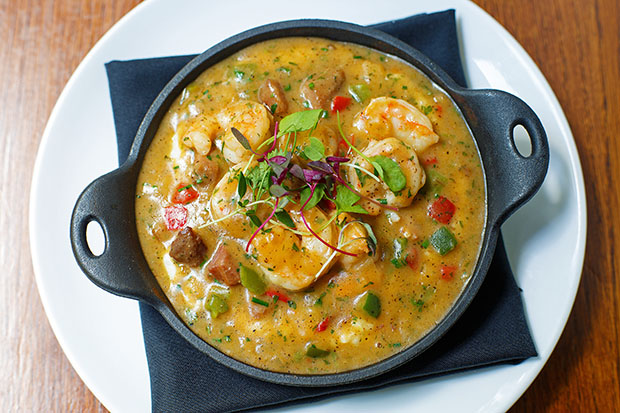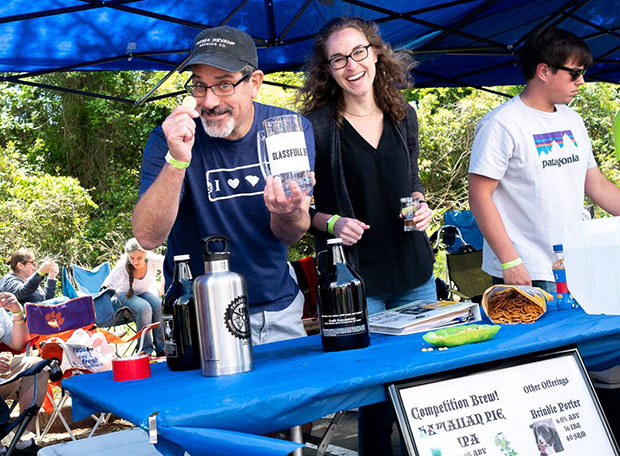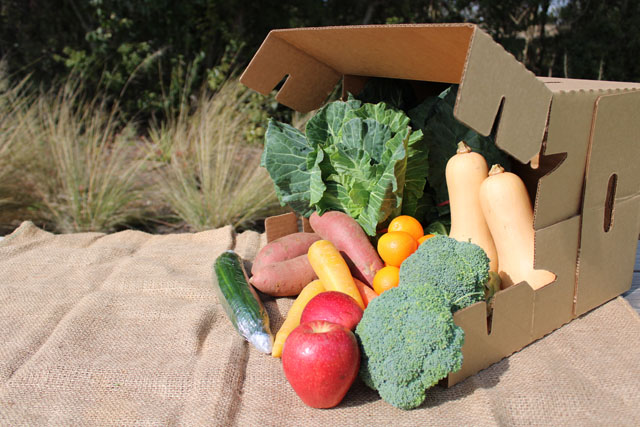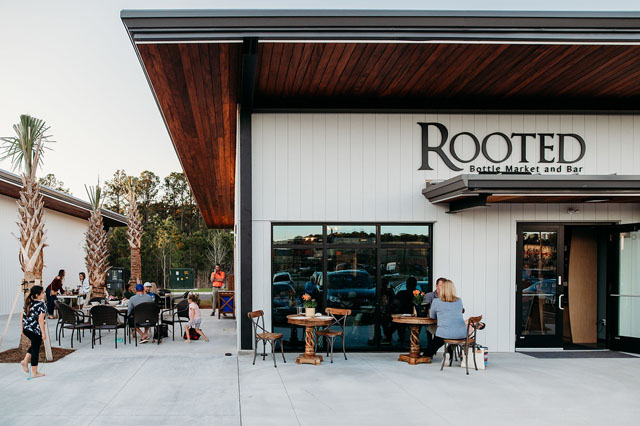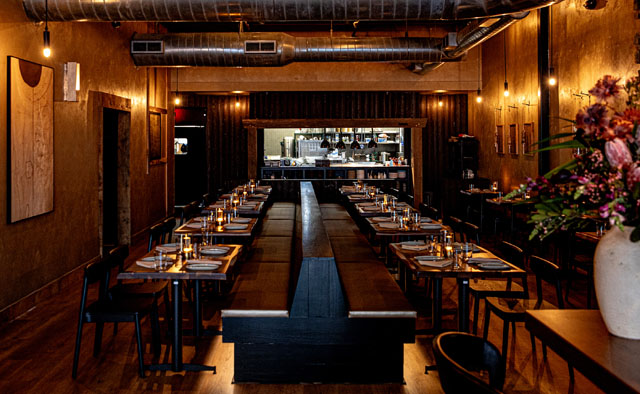Serving up goodness
05 Jul 2020
Restaurant owner stalwart in Charleston’s hospitality community
By Holly Fisher
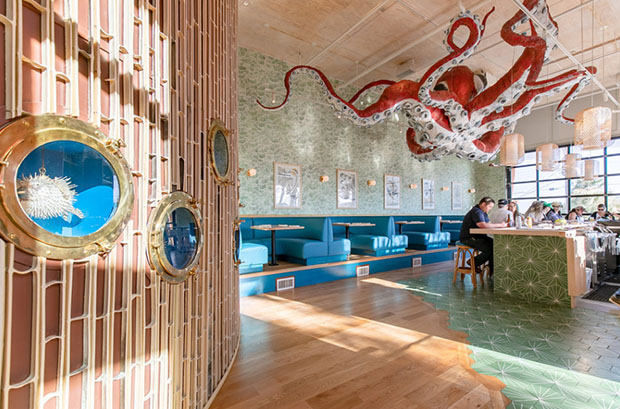
Karalee Nielsen Fallert was practically destined for a life in the restaurant industry. Recognized as one of Charleston’s premier restauranteurs, Fallert was born into a food-centric family of entrepreneurs.
So, it did not take long for Fallert to answer the call. She started out waiting tables in San Jose, California.
“That was when I first learned about the action and excitement and adrenaline that comes from being in the business,” she said. “The joy and humanity you get to plug into every day when you serve people.”
So much happens in a restaurant, Fallert said. People go on dates, they break bad news, or gather together after life events. When you work in a restaurant, you can be in that experience with them as an active observer.
Those experiences have kept Fallert in the restaurant business for the long haul.
Recipe for Success
After leaving her home state of California, Fallert moved to Utah to study culinary arts and visual merchandising at Utah Valley University. She also owned and operated a restaurant in Salt Lake City before heading east. In 2000, Fallert landed in Charleston with plans to pursue her passion for writing.
But when Fallert needed a little extra Christmas money, she found herself back in a restaurant, applying for a hostess job at McCrady’s downtown. When management learned she was probably overqualified for the hostess position, Fallert was invited to be part of the opening of 39 Rue de Jean in downtown Charleston.
Fallert was officially back in the restaurant business, cementing her place in Charleston’s culinary scene even before the city developed its reputation as a go-to place for food fanatics.
“I found my groove here,” Fallert said.
Today, Fallert is the founding partner and co-owner of The Park Café, The Royal American, Wiki Wiki Sandbar on Folly Beach and three Taco Boy locations. In years past, she also was part of Raval, a tapas bar on King Street, Monza Pizzeria, and beer pub Closed for Business.
Fallert likens two decades of running restaurants to “learning how to fly a jet plane at 30,000 feet.” She added, “You learn so much about business that way – figuring out over time what partnerships feel right and what ones don’t.”
Being in the restaurant business is all about risk. Aspiring restauranteurs who are risk-adverse won’t thrive in the environment, Fallert said.
For many, opening a restaurant is a romantic notion, but Fallert said you have to read the market and study the data. And that process is constant, as the market and industry themselves shift.
“What was important to me 10 years ago is different now,” Fallert said. “Then, access to King Street was super important or access to a commercial corridor with foot traffic. Now, it’s parking. If you don’t have parking, we’re not even talking about it.”
A Civic Leader Emerges
Keeping a strong finger on the pulse of Charleston’ industry has been an important part of Fallert’s success.
In the years since she came to Charleston, the city has landed on multiple “best of” lists and attracted tourists in droves. The city’s popularity has created both opportunity and challenges.
Fallert has been vocal in issues impacting Charleston’s hospitality community.
“Some days I put on my hat as civic leader,” she said. “What can I do in terms of influencing policy here? I work with other industry leaders to highlight issues we believe – if not remedied quickly – will become real systematic problems.”
Chief among those issues are housing and transportation. She points to places like Aspen, Colorado, and Jackson, Wyoming, where people working in hospitality commute over an hour each way to their jobs – a reality facing Charleston as well.
“People wouldn’t come [to these cities] if hospitality was not such an asset, but if we’re not investing in that asset, it undercuts the ability to keep that community thriving,” Fallert said. “We spend a lot of time thinking about it.”
Fallert is a woman of action. In 2009, she co-founded The Green Heart Project, a program connects students with fresh produce by educating them about the nutritional benefits of eating healthy and the joy that comes from growing their own food.
The initial garden project has expanded to seven schools in the Charleston area. Most recently, The Green Heart Project developed an urban farm at the William Enston Home, an affordable housing complex in downtown Charleston. Produce grown at the urban farm will be donated to nearby schools and sold at affordable prices to Enston Home residents.
Fallert continues to serve on the board of directors for The Green Heart Project.
Two years ago, Fallert branched out from culinary ventures into early childhood education. With a young son, Fallert quickly realized she needed some help juggling her role as a single working mom. Through mutual friends she met educator Bianca Swinburne.
As their friendship grew, so did their desire to create a positive impact in children’s lives. Fallert and Swinburne partnered to open the Montessori Learning Collective in North Charleston in 2018. The school serves children 3 months to 6 years old – including Fallert’s 3-year-old son, Harley.
Her local awards have included the Historic Charleston Foundation’s IMPACT award in 2014 and Charleston Wine + Food’s Laura Hewitt Culinary Legend Award in 2020. She is on the Charleston Wine + Food board and regular participant in FAB, an annual conference for women in the hospitality industry.
Moving forward
It would be easy to look at Fallert’s life and marvel at how she keeps all the plates spinning. But having her son and getting divorced shortly after prompted Fallert to rely on outside help and support.
“I was used to blazing ahead and making things happen,” she said. “That wasn’t going to be sustainable for me energetically.”
So, Fallert hired a full-time assistant to keep her days organized, allowing Fallert to focus on what’s most important for her companies.
Her assistant helped her streamline mundane tasks like using grocery delivery and putting bills on auto-pay, so when Fallert was home, she could be fully present with her son, not doing chores.
This lifestyle shift also made Fallert realize the importance of investing in herself. For her, that meant regular exercise.
“I’d always practiced yoga a lot and meditation, but I turned that focus to running and high-intensity workouts,” she said. “That was an incredible benefit for my brain and outlook on life. My ability to process and handle stress is so much better. I realized what a lifeline that was. If I invest in myself just a small amount every day, I’m better for everyone.”
Fallert said stress-relieving exercise was even more important as she dealt with the fallout of the coronavirus and its impact on her businesses.
She’s also turned to colleagues in the industry – Steve Palmer of The Indigo Road Hospitality Group, Mickey Bakst from Charleston Grill, and Aaron Siegel of Home Team BBQ – for support and connection during COVID-19.
Fallert said the pandemic “really brought us all together in a meaningful way daily.”
Going from business as usual to quarantine practically overnight hit Charleston’s hospitality industry in a way no one could have imagined.
“We’ve learned emergency skills and agility during hurricane season,” Fallert said. “We’re used to reacting quickly, but I don’t think there are many leaders in our industry who couldn’t have fathomed furloughing 99 percent of their team.”
As businesses began to open their doors in May, Fallert said she was grateful to once again welcome customers. “I feel like there’s a path forward.”
Bio
Education: Studied culinary arts and visual merchandising at Utah Valley University
Family: 3-year-old son, Harley
Hometown: Fresno, California
Hobbies: Exercise; volunteering as a Charleston Wine + Food board member; regular participant in FAB, an annual conference for women in the hospitality industry; board of directors, The Green Heart Project

